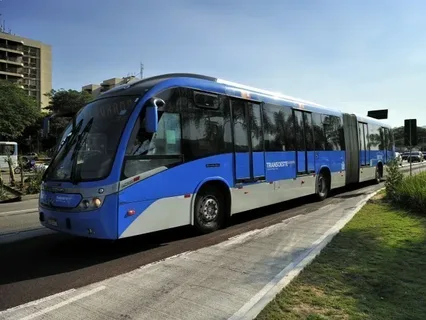Bus Insurance: Everything You Need to Know
Introduction
Bus insurance is a crucial aspect of owning and operating a bus, whether it’s for public transportation, school services, or private charters. This comprehensive guide will cover everything you need to know about bus insurance, including types, coverage options, costs, and tips for finding the best policy. We’ll also add a touch of humor to keep things light and engaging. So, buckle up and let’s dive into the world of bus insurance!

What is Bus Insurance?
Bus insurance is a type of commercial vehicle insurance designed specifically for buses. It provides coverage for various risks associated with operating a bus, including accidents, theft, and liability. Just like you wouldn’t drive a car without insurance, you shouldn’t operate a bus without proper coverage.
Types of Bus Insurance
1. Liability Insurance
Liability insurance is the most basic type of bus insurance and is usually required by law. It covers damages and injuries you may cause to others in an accident. Think of it as the “oops, my bad” coverage.
2. Collision Insurance
Collision insurance covers damages to your bus resulting from a collision with another vehicle or object. It’s like having a safety net for those “oops, I didn’t see that coming” moments.
3. Comprehensive Insurance
Comprehensive insurance covers damages to your bus from non-collision events, such as theft, vandalism, or natural disasters. It’s the “just in case” coverage for all those unexpected surprises.
4. Medical Payments Insurance
Medical payments insurance covers medical expenses for you and your passengers in the event of an accident. It’s like having a first-aid kit on wheels.
5. Uninsured/Underinsured Motorist Insurance
This type of insurance covers damages and injuries caused by a driver who doesn’t have enough insurance to cover the costs. It’s the “better safe than sorry” coverage.
Factors Affecting Bus Insurance Costs
Several factors can influence the cost of bus insurance, including:
1. Type of Bus
The type of bus you operate (e.g., school bus, charter bus, city bus) can affect your insurance rates. Generally, larger buses and those used for public transportation may have higher premiums.
2. Usage
How you use your bus (e.g., daily routes, long-distance travel, special events) can impact your insurance costs. Buses used for frequent or long-distance travel may have higher premiums.
3. Driver’s Record
The driving record of your bus drivers can significantly affect your insurance rates. Drivers with clean records typically result in lower premiums, while those with accidents or violations may increase costs.
4. Location
Where you operate your bus can also influence your insurance rates. Areas with higher traffic density or crime rates may result in higher premiums.
5. Coverage Limits
The amount of coverage you choose will impact your insurance costs. Higher coverage limits generally result in higher premiums, but they also provide greater protection.

Tips for Finding the Best Bus Insurance Policy
Finding the right bus insurance policy can be a daunting task, but these tips can help you navigate the process:
1. Shop Around
Don’t settle for the first insurance quote you receive. Compare multiple quotes from different insurers to find the best coverage at the best price.
2. Bundle Policies
If you have other commercial vehicles or insurance needs, consider bundling your policies with one insurer. Many companies offer discounts for bundling.
3. Maintain a Good Driving Record
Encourage your drivers to maintain clean driving records. This can help lower your insurance premiums and reduce the risk of accidents.
4. Increase Deductibles
Increasing your deductibles can lower your insurance premiums. Just make sure you have enough funds set aside to cover the higher deductible in case of a claim.
5. Review Coverage Annually
Insurance needs can change over time, so it’s essential to review your coverage annually. Make adjustments as needed to ensure you have the right protection.
Common Questions About Bus Insurance
1. Is bus insurance mandatory?
Yes, bus insurance is typically required by law. The specific requirements may vary depending on your location and the type of bus you operate.
2. How much does bus insurance cost?
The cost of bus insurance can vary widely based on factors such as the type of bus, usage, driver’s record, and location. On average, premiums can range from a few hundred to several thousand dollars per year.
3. Can I get discounts on bus insurance?
Yes, many insurers offer discounts for factors such as bundling policies, maintaining a good driving record, and implementing safety features on your bus.
4. What should I do if I need to file a claim?
If you need to file a claim, contact your insurance provider as soon as possible. Provide all necessary documentation and cooperate with the claims process to ensure a smooth resolution.

Conclusion
Bus insurance is an essential aspect of operating a bus, providing protection against various risks and ensuring compliance with legal requirements. By understanding the different types of coverage, factors affecting costs, and tips for finding the best policy, you can make informed decisions and keep your bus and passengers safe. Remember, a well-insured bus is a happy bus!
For more information on bus insurance, you can visit Insurance Information Institute or National Association of Insurance Commissioners.
Feel free to reach out if you have any questions or need further assistance. Safe travels!
Leave a Reply